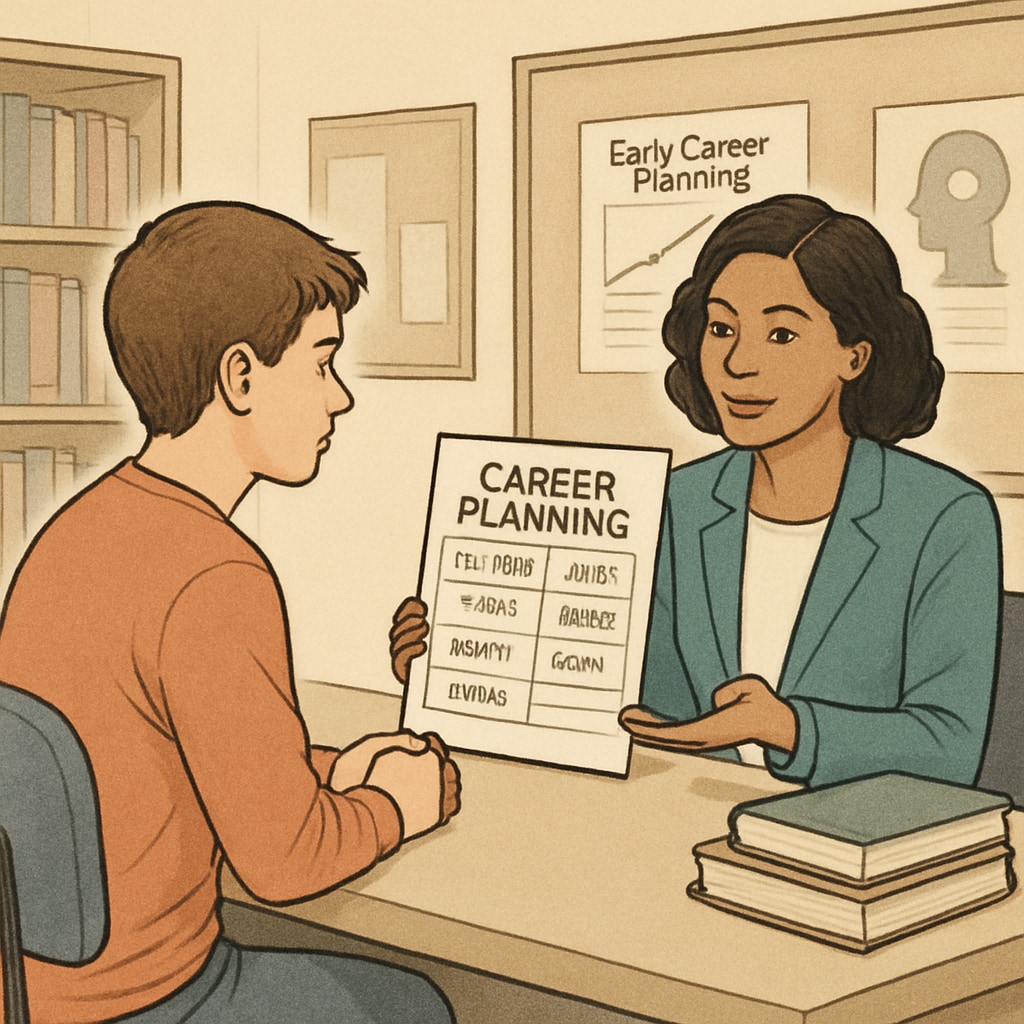Life seldom unfolds as planned, and for many students, academic interruptions can create unexpected detours. When faced with challenges such as dropping out or pausing university studies, the process of career planning, professional choices, and finding a clear career direction can feel overwhelming. Balancing personal interests with job market demands, especially in the absence of systematic guidance, is no easy feat. This article explores how students can navigate these crossroads and make informed decisions about their future.
Why Early Career Planning Matters
Career planning is often overlooked in the K12 education phase, yet it plays a crucial role in shaping students’ futures. Early exposure to career education helps students understand their strengths, interests, and the realities of the job market. For instance, students who receive structured guidance are more likely to identify pathways that align with their aspirations while remaining realistic about employment opportunities.
However, many school systems focus heavily on academic success without providing sufficient resources for career exploration. As a result, students may find themselves lost after academic interruptions. Developing a comprehensive career education framework early on could prevent such scenarios. By integrating programs that encourage self-discovery and market analysis, schools can better equip students to handle uncertainty in their academic or professional journeys.

Balancing Passion and Practicality in Career Choices
When academic interruptions occur, students often question their initial professional choices. This is an opportunity to re-evaluate priorities. While pursuing passions is essential, ignoring economic realities can lead to prolonged struggles. Thus, students must find a middle ground between what they love and what the job market demands.
Here are some practical steps for achieving this balance:
- Self-Assessment: Evaluate personal interests, skills, and values. Tools like personality tests or career aptitude tests can provide valuable insights.
- Market Research: Investigate industries with strong growth potential. For example, fields like technology, healthcare, and renewable energy currently offer promising opportunities (U.S. Bureau of Labor Statistics).
- Skill Development: Identify skills in demand within your chosen field and pursue certifications, online courses, or internships to bridge gaps.
- Mentorship: Seek advice from professionals in your desired field to gain realistic perspectives on career trajectories.
By combining introspection with research, students can make informed decisions that align with both their passions and financial needs.

Systematic Career Education: A Necessity
The lack of systematic career education exacerbates the challenges of academic interruptions. Without structured guidance, students often rely on trial and error, which can be both time-consuming and costly. This highlights the need for educational systems to incorporate career counseling as a core component.
Key elements of a robust career education program include:
- Interest Exploration: Workshops and activities to help students identify their passions and strengths.
- Career Mapping: Tools and resources to visualize potential career paths based on individual skills and market trends.
- Skill Enhancement: Opportunities to learn industry-specific skills through internships, apprenticeships, or project-based learning.
- Continuous Support: Access to career counselors who can provide ongoing guidance during and after academic transitions.
Countries that have implemented such programs show higher levels of student satisfaction and employability (OECD Education Insights). By adopting a similar approach, more students could confidently navigate academic interruptions and professional uncertainties.
Moving Forward After an Academic Break
For those who have already experienced academic interruptions, it is never too late to regain momentum. Here are actionable steps to move forward:
- Reassess Goals: Take time to reflect on whether your initial academic or professional goals are still relevant.
- Seek Guidance: Many organizations offer career counseling services specifically designed for individuals reentering education or the workforce.
- Create a Plan: Outline clear short-term and long-term goals, including steps to achieve them.
- Stay Flexible: Be open to exploring new opportunities or fields that may not have been part of your original plan.
Academic interruptions do not have to define your future. With the right mindset and resources, you can use these challenges as opportunities for growth and redirection.
In conclusion, navigating academic interruptions and career choices requires a combination of self-awareness, strategic planning, and external support. By balancing personal interests with market realities and advocating for systematic career education, individuals can overcome these challenges and find fulfilling career paths.
Readability guidance: This article uses short paragraphs and lists to enhance readability. Transitions and examples are used to maintain a logical flow. Passive voice is minimized, and active voice is prioritized to keep the tone engaging and clear.


